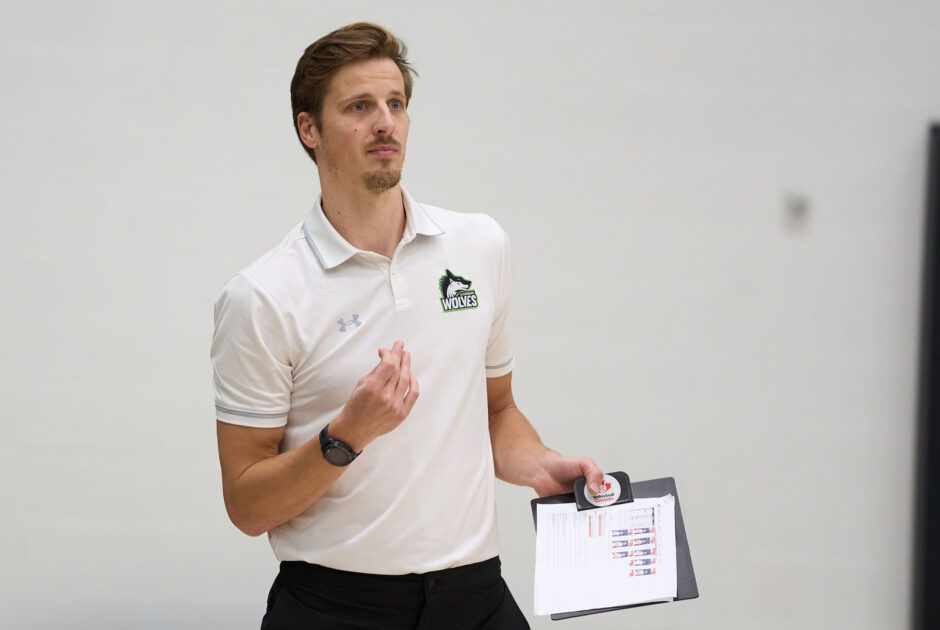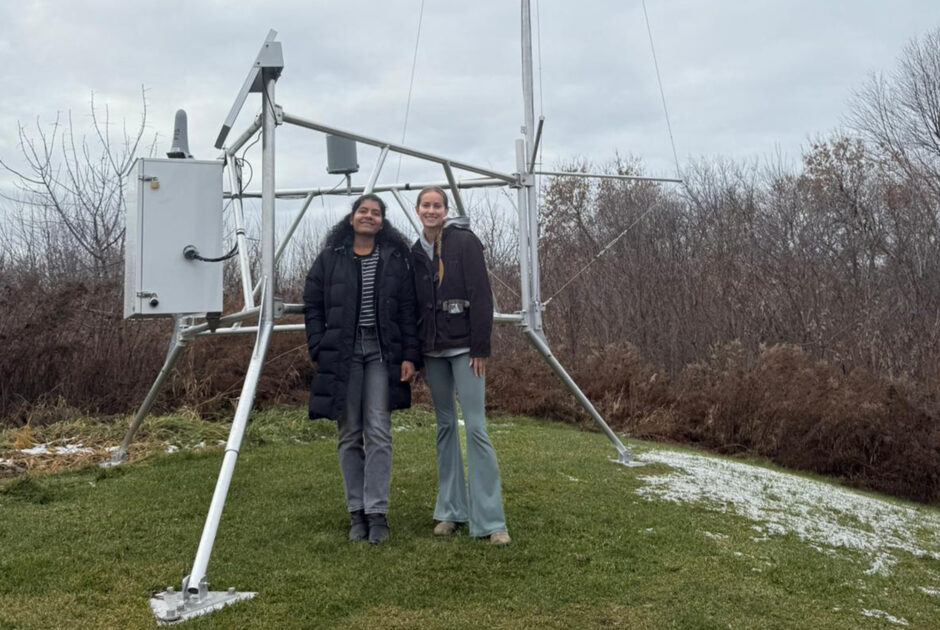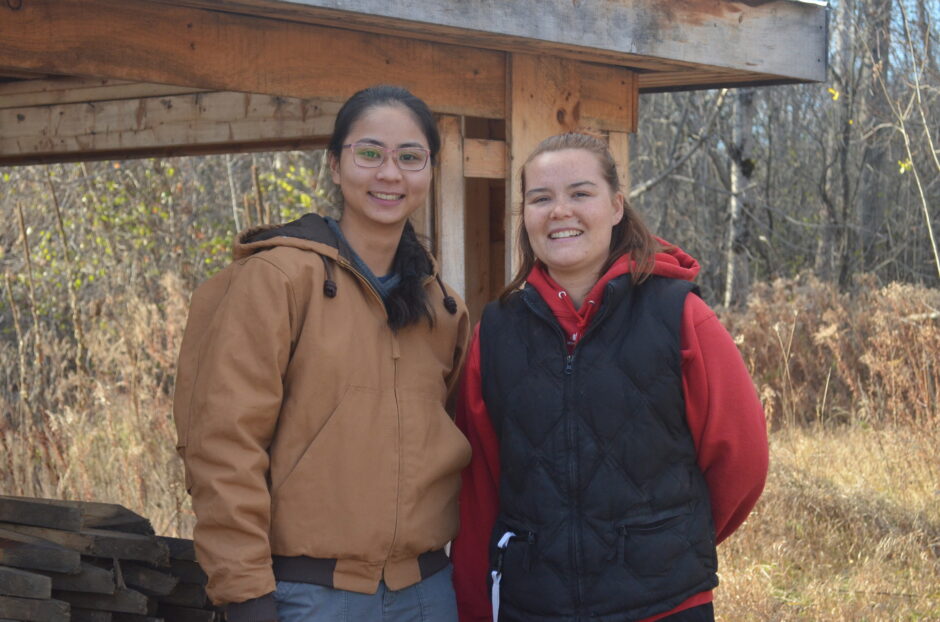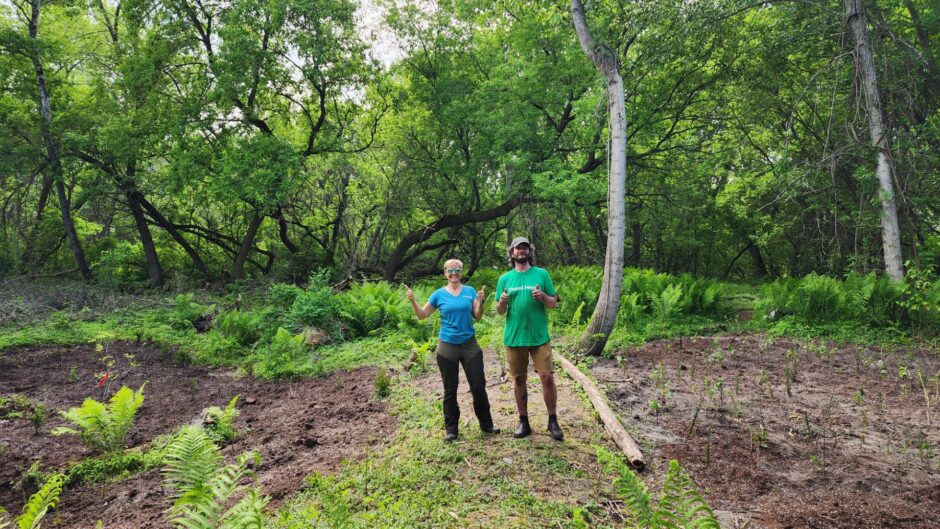Hothouse series returns to showcase scripts with ‘otherworldly’ qualities

Students in Algonquin College’s scriptwriting program are excited to hear their 10-minute original plays read publicly by actors, as part of the annual Hothouse play reading series.
Hothouse is a three-part theatre event whereby emerging Ottawa playwrights are given the opportunity to showcase new scripts for a supportive audience of family, friends, faculty and industry professionals.
The first of three Hothouse presentations will be on Friday, Feb. 25 at 6:30 p.m. for a virtual livestream audience. Hothouse 2 will take place on March 11 and Hothouse 3 will be on March 25. Each evening will consist of eight short plays broadcast out of a television studio on campus.
Hothouse has been running every winter semester since 2007 but has gone through many evolutions since then, according to Laurie Fyffe who took it over in 2017 and introduced the 10-minute play. She and the team made the pivot to an online presentation format last year.
Fyffe is an established local theatre artist and teaches writing for actors at the college. The readings are an essential part of the creative process, she says.
“Dialogue is meant to be read aloud,” she said. “Students benefit so much from the talents of actors. This is when the real rhythm and energy starts to come alive.”
Every year Fyffe said she gets the same comments from students over and over after the readings: “I had no idea it would be so valuable.”
What makes this season of Hothouse unique, in Fyffe’s opinion, is the poetic language and “otherworldliness” the writers are using to create alternate realities.
“Maybe it’s because we’re living in an alternate reality,” she said.
Fyffe helped playwright Abdelghafor Elgamri think theatrically when it comes to his writing.
Elgamri moved to Canada from Sudan in September 2021. An established Arabic writer, he is in the process of finishing his third novel. Elgamri said the scriptwriting program expanded his mind and helped him discover new ways to tell stories. He entered the program as a novelist but will exit as a playwright and screenwriter as well.
Elgamri is excited to see his words come to life at Hothouse.
“You feel like a God or something; you created something and now it’s there,” he said.
Elgamri has written a “startlingly good allegorical script” based on the political situation in Sudan, according to Fyffe. It is called The Absurdity of Ghosts and reflects on the psychological state of the leader of the military coup after killing anti-coup protesters.
“I can’t wait to have this thing be acted out and then share it with people back home through social media,” said Elgamri. “This is an opportunity to show what happened in Sudan and put it out there into the world.”
Also included in the first evening of Hothouse is Nicole Burggraaf’s I’ll be Loving You Parenthesis Forever and Meagan Le Duc’s A Haunting Melody.
Burggraaf was in her mid 40s working as an optometric assistant when “COVID happened” and she had an epiphany.
“’Oh my goodness, I love to write,'” she said she remembers thinking. “I’ve got to do something about it.”
Her script, she said, explores the need to hold onto your younger self as you grow older. The protagonist, Heather, wakes up from a leisurely afternoon nap to discover she is married to her childhood crush, Joey McIntyre from the boy band New Kids on the Block.
This comedy inspired by fan obsession is the first play Burggraaf has ever written.
“It will be interesting to hear my own words come out of someone else’s mouth,” Burggraaf said. “I am also very curious to hear the work of my peers acted out loud.”
This is not Meagan Le Duc’s first play, but it is the first time she plotted out the storyline in advance before beginning the writing process. Her piece is about a near-fatal car accident triggering its victim to face haunting memories and come to terms with the truth.
Le Duc said she recognizes a lot of herself in Merlin, one of the characters in her two-hander script.
“I had a lot of fun writing this,” she said. “I am very satisfied with how it turned out.”
Le Duc looks forward to being amongst the crowd and witnessing everyone’s reactions. Though the virtual format will feel different than having her script read aloud in person, it still allows Le Duc to share the piece and get feedback.
“I am eager to see how people interpret the ending,” she said. “My writing has a very implicant style and the only way to know whether I’ve left it too open-ended is to see how it lands with a test audience.”
Le Duc is aiming to acquire a strong grasp of script writing at Algonquin College before pursuing a career in film production.
“I want to prove to myself that my passion can be more than a hobby,” she said.
The Hothouse script readings allow playwrights to experience firsthand what works and what needs more work in a supportive and playful environment. It is an exciting opportunity, according to the playwrights, and they are all looking forward to it.








